The majestically beautiful Annapurna region is one of the most popular trekking regions in Nepal. The Annapurna range of the Himalayas stands tall on the northern side with beautiful and gigantic peaks towering towards the sky. You will find the magnificence of Annapurna in between the Manaslu and Dhaulagiri ranges of the mountains.
Overview
There is nothing like trekking through the mountains, traversing the winding trails to the base camp in the high mountains. Annapurna Sanctuary Trek is an adventure that gives you a beautiful experience of the rugged mountain trails. Also famous as Annapurna Base Camp Trek, this adventure ultimately takes you to the base camp of Annapurna, as the name suggests.
An adventure trek to Annapurna Sanctuary of 14 days in the mountains brings an excellent opportunity to explore the Annapurna region at its best. Trekking in the Annapurna Sanctuary is one of the most beautiful base camp treks in Nepal, and this trek takes you along the well-trodden trail through pristine surroundings. The Annapurna Sanctuary trek from Kathmandu receives the second-largest number of base camp trekkers after the Everest Base Camp Trek.
Whatever name you give it, some people also call it ABC Trek. The surroundings will provide you with the same peaceful ambiance. Annapurna Sanctuary Trek Nepal is a journey worth experiencing. You can explore the majestic peak of Annapurna Himal at the top of its serene environment and vibrant presence.
What you see during the Annapurna Sanctuary Trek
The majestically beautiful Annapurna region is one of Nepal's most popular trekking regions. The Annapurna range of the Himalayas stands tall on the northern side, with gorgeous and gigantic peaks towering towards the sky. You will find the magnificence of Annapurna in between the Manaslu and Dhaulagiri ranges of the mountains.
As a trekker in the region, the view of magnificent Himalayan peaks is undoubtedly the main highlight that you will see. You can enjoy the mountains ranging from Mt. Dhaulagiri (8167m), Gangapurna, Fishtail, Annapurna I (8091m), Hiunchuli, Annapurna South, etc.
In addition to the view of the mountains, another essential thing you will notice during the trek is the peaceful nature. Naturewalk takes you through forests and bushes that form a stunning green surrounding. You start walking through the lower Himalayan foothills and gradually gain elevation towards the high Himalayan region. You will be amidst the high soaring mountain peaks as you reach the base camp (4,130m).
You will also see and experience the simple yet beautiful life and cultures of people living in the region. And you cannot certainly miss the sunrise from Poon Hill. This gorgeous sunrise experience is not only the highlight of this trek but also of the Ghorepani Poon Hill Sunrise Trek.
Reasons this trip becomes an Experience.
Nepal Climbing Adventure always strives to offer an adventure traveling Experience you can cherish. While the Annapurna Sanctuary Trek package is beautiful, your trekking Experience becomes even more beautiful with us.
When we take you to the base camp and bring you back, we take one step ahead to offer you a beautiful experience. We keep your safety and happiness as our top priority, and you will experience the same during the trip.
With us, this 14-day trip to the Annapurna Base Camp is in safe hands. The Annapurna Sanctuary trek route is usually less complicated and shorter than the Annapurna circuit.
Trekking in the Annapurna Sanctuary leaves your heart cherished with joy and abundant natural phenomena. You can connect your soul with the heart of NatureNaturest the towing peaks.
Annapurna Sanctuary Trek vs Annapurna Circuit Trek
Both treks fall under the Annapurna region. However, to list the significant differences, let us compare the Annapurna Sanctuary trek and the Annapurna Circuit trek. The Annapurna circuit usually takes a longer time and route than the Annapurna Sanctuary trek.
|
Feature |
Annapurna Sanctuary Trek |
Annapurna Circuit |
|
Duration |
10-14 days |
15-21 days |
|
Maximum Elevation |
Annapurna Base Camp (4,130 meters / 13,550 ft) |
Thorong La Pass (5,416 meters / 17,769 ft) |
|
Trek Type |
Out-and-back |
Circuit (loop) |
|
Highlights |
Annapurna Base Camp, Machapuchare Base Camp, diverse flora and fauna, hot springs at Jhinu Danda |
Thorong La Pass, Muktinath Temple, Jomsom, Kali Gandaki Gorge, Manang, Tilicho Lake (optional side trek) |
|
Scenery |
Alpine meadows, high glaciers, dense forests, rhododendron forests, river valleys |
Varied: subtropical forests, alpine meadows, desert, high mountain passes, rivers, terraced fields |
|
Difficulty |
Moderate |
Moderate to Strenuous |
|
Acclimatization |
Moderate need for acclimatization |
High need for acclimatization due to higher altitudes |
|
Accommodation |
Tea houses, lodges |
Tea houses, lodges, guesthouses |
|
Best Season |
Spring (March-May), Autumn (September-November) |
Spring (March-May), Autumn (September-November) |
|
Permit Requirements |
TIMS (Trekkers' Information Management System), ACAP (Annapurna Conservation Area Permit) |
TIMS, ACAP |
|
Cultural Experience |
Gurung and Magar villages, local customs, traditional dances |
Diverse ethnic groups, including Thakali, Gurung, Manangi, Tibetan communities, traditional customs, festivals |
|
Accessibility |
Easier access, shorter trek, suitable for those with limited time |
Requires more time, longer trek, more remote sections |
|
Weather Conditions |
Milder weather, though, can be cold at higher altitudes |
More varied, harsher conditions at high passes, potential for snow and ice on Thorong La Pass |
|
Trail Conditions |
Well-marked trails, moderate ascents and descents |
Varied trail conditions include challenging sections, especially near Thorong La Pass |
|
Cost |
Moderate, relatively less expensive |
Higher due to longer duration and more remote areas |
|
Wildlife |
Possible sightings of pheasants, langur monkeys, and mountain goats |
Possible sightings of blue sheep, snow leopards (rare), and various bird species |
|
Extra Activities |
Hot springs at Jhinu Danda, cultural tours in villages |
Side trips to Tilicho Lake, Ice Lake, and natural hot springs in Tatopani |
Annapurna Sanctuary Trek Highlights
The highlights of 14 days of Annapurna sanctuary trekking are:
- Trekking through peaceful and magnificent mountain landscapes
- Breathtaking view of the snow-capped mountains
- Panoramic Himalayan vistas of Annapurna South, Annapurna I, Machapuchare, and Hiunchuli.
- Diverse landscapes from subtropical forests to alpine meadows.
- Rich biodiversity with rhododendron forests, orchids, and varied wildlife.
- Cultural immersion in traditional Gurung and Magar villages.
- Tibetan Buddhist influence with prayer flags, monasteries, and chortens.
- Relaxing natural hot springs at Jhinu Danda.
- Stunning sunrise views from Poon Hill over the Annapurna and Dhaulagiri ranges.
- Reaching Annapurna Base Camp at 4,130 meters (13,550 feet).
- A challenging and rewarding mix of ascents, descents, and flat sections.
- Authentic Nepali dishes like dal bhat and momo along the trek.
- Unique perspectives of Machapuchare (Fishtail) peak from its base camp.
Annapurna Sanctuary Trek Cost for 2024 - 2025
Annapurna Sanctuary trail usually costs around $1200 to $1700. This cost includes an itinerary with accommodation, food, and travel mediums. Accommodations can be reduced when traveling in a group. The cost of adding services depends on your preferences. Upgrading accommodation in Kathmandu and Pokhara. Accommodations will be charged in extra charges. The price excludes travel insurance and permit fees.
|
Group size |
cost |
|
1 |
USD 1500 |
|
2 - 5 |
USD 1200 |
|
5 - 7 |
USD 1100 |
|
8 - 10 |
USD 1050 |
|
10 + |
USD 975 |
Why Annapurna Sanctuary Trail Trek?
Choosing the Annapurna Sanctuary Trail Trek is a decision that speaks to the soul of an adventurer seeking unparalleled beauty and a deep connection with nature. The trek offers a journey through some of the most breathtaking landscapes on the planet. It presents an opportunity to immerse oneself in the rich cultural tapestry of the Nepalese people. Every step rewards you with awe-inspiring views of towering peaks, including the majestic Annapurna. The route takes you through lush forests, past sparkling rivers, and into the heart of the Annapurna Conservation Area, a sanctuary for wildlife and the human spirit. This Annapurna trek hike is more than a physical challenge. It is a pathway to understanding the harmony between nature and nurture.
Why Trekking the Annapurna Sanctuary?
The Annapurna Sanctuary Trek package is a popular choice for several compelling reasons:
- The trek offers breathtaking views of the Annapurna and Dhaulagiri ranges, including the majestic peaks of Annapurna South, Hiunchuli, and Machapuchare (Fishtail).
- Trekkers pass through lush rhododendron forests, bamboo groves, alpine meadows, and high glacial basins.
- The maximum elevation of 4,130 meters at Annapurna Base Camp reduces the risk of severe altitude sickness compared to higher-altitude treks.
- Visitors can participate in local customs, traditional dances, and festivals, enhancing the cultural richness of the trek.
- Natural Hot Springs
- The trek is rich in biodiversity, with chances to spot various wildlife such as langur monkeys, mountain goats, and diverse bird species.
- The trek typically takes 10-14 days, making it an excellent option for those with limited time but seeking a comprehensive trekking experience.
- The required permits (TIMS and ACAP) are straightforward to obtain.
How Hard is Annapurna Sanctuary Trek?
The trek to Annapurna Sanctuary is generally considered a moderate trek in terms of difficulty. Here's a breakdown of the various factors contributing to its difficulty: Let us see how hard the Annapurna Sanctuary trekking tour is.
Terrain and Trails
- Varied Terrain: The trek involves a mix of steep ascents and descents, flat sections, and rocky and uneven paths.
- Steps and Staircases: There are numerous stone steps, especially in sections like the ascent to Ulleri and the descent from Chhomrong, which can be challenging for some trekkers.
Elevation
- Maximum Elevation: The trek's highest point is Annapurna Base Camp, at 4,130 meters (13,550 feet). While this is significant, it is not as high as some other treks in Nepal, which reduces the risk of severe altitude sickness.
- Gradual Ascent: The elevation gain is gradual, allowing for better acclimatization. However, some individuals may still experience mild symptoms of altitude sickness.
Physical Fitness
- Endurance Required: Trekkers should have good physical fitness and stamina, as the trek involves walking 5-7 hours per day on average.
- Previous EExperienceHelpful: Prior trekking experience can be beneficial but not mandatory.
Weather Conditions
- Annapurna Sanctuary Weather can be unpredictable, with potential for rain in the lower regions and cold temperatures at higher altitudes, especially in the early morning and evening.
- Seasonal Challenges: In winter, trails can be icy and snow-covered, adding to the difficulty.
Duration
- The trek typically takes 10-14 days, which is manageable for most trekkers but requires sustained physical effort over an extended period.
Accommodation and Facilities
- Basic Lodges: Accommodation is in teahouses, which are basic but comfortable. Amenities may be limited, especially at higher altitudes.
- Food and Water: Nutritious food is available, but options can become limited as you ascend. It's essential to stay hydrated and carry water purification tablets.
Altitude Sickness
- While the risk of altitude sickness is lower than higher-altitude treks, it's still present. Trekkers should be aware of the symptoms and take precautions.
Key Points to Consider
- Training and Preparation: Regular cardiovascular exercise, strength training, and practice hikes can help prepare for the trek.
- Pacing and Acclimatization: Taking a slow and steady pace, allowing time for acclimatization, and listening to your body are crucial for a successful trek.
- Packing Wisely: Bringing appropriate gear, including good-quality trekking boots, warm clothing, and a sturdy backpack, is essential.
Outline itinerary
Day 01: Arrival in Kathmandu (1,300m/4,264ft)
Day 02: Kathmandu - Pokhara (827m/2,700ft) 7 Hrs. Drive by Tourist Bus
Day 03: Pokhara - Nayapul - Ulleri (2050 m/6725 ft): 1.5 Hrs Drive, 5-6 Hrs Trek
Day 04: Ulleri - Ghorepani (2,856 m/ 9,370 ft): 4 - 5 Hrs Trek
Day 05: Ghorepani - Poon Hill (3,210m/10,529ft) - Tadapani (2,625m/8,612ft) 6 - 7 Hrs Trek
Day 06: Tadapani - Chhomrong (2170m/7120ft): 5 - 6 Hrs Trek
Day 07: Chhomrong - Dovan (2670m/8760 ft): 5 - 6 Hrs Trek
Day 08: Dovan - MBC (3700m/12135ft): 6-7 Hrs Trek
Day 09: MBC - Annapurna Base Camp (4,130m/13,553ft): 3 - 4 Hrs Trek
Day 10: ABC - Bamboo (2310m/7578ft): 6 - 7 Hrs Trek
Day 11: Bamboo - Jhinu Danda (1760m/5770 ft): 5 - 6 Hrs Trek
Day 12: Jhinu - Nayapul - Pokhara (5 Hrs Trek, 1.5 Hrs Drive)
Day 13: Pokhara - Kathmandu (7 Hrs. Drive by Tourist Bus)
Day 14: Departure Day
Optimal Seasons for Trekking the Annapurna Sanctuary
The best time to trek Annapurna Sanctuary is during the optimal season. When planning your trek to the Annapurna Sanctuary, timing is crucial for a memorable experience. Here's a fresh perspective on the best time to trek Annapurna Sanctuary:
Spring (March to May)
- The trails are adorned with vibrant rhododendron blossoms, creating a picturesque landscape.
- Daytime temperatures are comfortable, ranging from 10°C to 20°C (50°F to 68°F), making trekking pleasant.
- The skies are generally clear, offering breathtaking views of the Annapurna and Dhaulagiri ranges.
- Spring is an excellent time to spot various bird species and other wildlife in the region.
Autumn (September to November)
- The monsoon rains wash away dust and haze, creating crystal-clear mountain vistas.
- This period boasts stable weather conditions with minimal rainfall, ensuring safer and more predictable trekking.
- Trekking during autumn allows you to experience local festivals like Dashain and Tihar, adding a cultural dimension to your journey.
- Temperatures are similar to those in spring, making it ideal for trekking.
Summer/Monsoon (June to August)
- The monsoon season transforms the landscape into a lush, green paradise, perfect for nature enthusiasts.
- This off-peak season means fewer trekkers on the trails, offering a more serene experience.
- Be prepared for heavy rainfall, leeches, and occasional landslides. Proper gear and preparation are essential.
Winter (December to February)
- The trek takes on a magical quality with snow-covered trails and mountains.
- The winter season sees fewer trekkers, providing a more tranquil and solitary experience.
- Get ready for cold temperatures, especially at higher altitudes, with daytime temperatures ranging from -10°C to 5°C (14°F to 41°F)
Accommodations and Meals During the Trek to Annapurna Sanctuary
Accommodations:
The primary form of accommodation along the Annapurna Sanctuary Trekking tour is tea houses. These are small lodges offering basic amenities. Typically, rooms are twin-sharing with two single beds. Bedding is provided, but bringing a sleeping bag for added warmth is advisable. Most tea houses have shared bathrooms. At lower altitudes, hot showers may be available for an extra charge, but at higher altitudes, hot water can be limited. Electricity is available, but charging electronic devices often comes with an extra fee.
Some tea houses offer Wi-Fi, usually for a small fee, but the connection can be slow and unreliable, especially at higher elevations. Basic tea houses are comfortable and provide a warm and welcoming atmosphere. They often have a communal dining area with a stove for heating.
Meals:
- Tea houses provide a variety of meals, typically featuring local Nepali dishes.
- Breakfast: Common options include porridge, pancakes, toast with jam or honey, eggs, and bread.
- Lunch and Dinner: Dal Bhat (a traditional Nepali meal of rice, lentil soup, and vegetables) is a staple and highly recommended for its nutritional value and energy. Other options include noodles, pasta, rice dishes, soups, and momo (Nepali dumplings).
- Snacks: Tea houses also offer snacks such as biscuits, chocolate bars, and fresh fruit.
- Special Diets: While tea houses generally cater to vegetarian diets, options for vegans and those with specific dietary needs may be limited. It's advisable to bring supplementary snacks if you have specific dietary requirements.
Tips for a Comfortable Stay:
- During peak seasons (spring and autumn), tea houses can fill up quickly. Arriving early or booking in advance can ensure you get a room.
- Dining areas and rooms can be cold, especially at higher altitudes. Wearing warm clothing in the evenings and mornings is essential.
- Carry a headlamp or flashlight, as electricity can be intermittent and tea houses often turn off lights early.
- Show respect for local customs and traditions, such as removing shoes before entering dining areas and rooms.
What is included?
- All airport and hotel transfers
- Welcome and farewell dinner
- Accommodation and meals during the whole of the trek.
- 2 nights in a 3-star hotel in Kathmandu
- 2 Nights Hotel Accommodation in Pokhara
- All necessary paper works and permits
- Government and local taxes
- An experienced English speaking trekking guide, assistant trek guide(4 trekkers: 1 assistant guide), porters(2 trekkers: 1 porter) including their salary, insurance, food, lodging, and all equipment.
- A comprehensive medical kit
What is not included?
- Nepal Visa fee(bring small denomination in cash USD and two passport photographs)
- International airfare
- Excess baggage charges
- Extra night accommodation apart from the schedule due to any reasons
- Lunch and evening meals in Kathmandu and case of early return than the scheduled itinerary
- Domestic Airfare if you want to fly
- Travel and rescue insurance
- Personal expenses
- Tips for travel guides or porters
Trishuli Rafting
USD 60 | 1 Day(s)
Rafting in Trishuli
Tatopani
USD 500 | 1 Day(s)
Tatopani near kathmandu
Sightseeing
USD 100 | 1 Day(s)
0
USD | Day(s)
There are a number of things that you need to keep in mind if you ever plan for your vacation. Because you want to make the most out of your limited time, it is truly a hectic job for you to find a trustworthy and experienced traveling companion. With Nepal Climbing, you have your problem solved already as we are one of the leading Trekking and Mountaineering organizations in Nepal and have been providing first class service in several travelling packages across the country for many years.
We prioritize your satisfaction and safety
At Nepal Climbing Adventure, our ultimate objective is to arrange the programs for you to make the most out of your valuable time. We value your satisfaction, adventure, amusement and safety. Regardless of whether you are searching for stunning perspectives along the trekking trails in Himalayan mountain range or widely acclaimed, heavenly attractions with developed societies, our exposure and experience in travel business will help you ensure your requirements are met.
We have professional staffs and service
We trust that extraordinary staff lead awesome administration. That is the reason we are collaborated with experienced and eager individuals. We possess authorized and government certified guides who are very much furnished with broad learning of Nepali communities and traditions. They additionally have familiar English speaking abilities and hierarchical capacities to encourage all types trekking groups.
Responsible Tourism and social values
We are endeavoring to lessen the effect of tourism by guaranteeing our staff are very much aware of ecological issues. We are doing our best to create less waste as could be expected under the circumstances and make a point to reclaim non-compostable wastes. We outline our itineraries and work in the field guided by the standards of ecotourism and reasonable tourism. Moreover, all our staff have been given ecological preparing and are extremely aware to the eco-system we enter. Additionally, we are adhering to sustainable assets of energy. Our guides will share you the social values, culture and religious harmony for better understanding the groups you visit.
Customizable Service
Our promise is to provide you with the travelling packages customizable according to your demand fulfilling your budget criteria. So, we can facilitate a minimum of 2 individuals with a personalized service at a reasonable cost.
EXCELLENT TREKKING
“The guide are so nice, always worried with everything and explain all the things. The Porter who followed me all the trek assure always my safe and everything I needed. Excelent. The company Nepal climbing adventure was always very professional. Thank you all.”
Andreia
GREAT TREK
“Everything was organised really well, would recommend to anyone.”
Dominic Santos
Trekking to Annapurna Base Camp
I went on a trekking to Annapurna Base Camp. Our guiding team was amazing and alowed us to complete our objective. The patience of one of our guides Ramsh turned this into an amazing experience. A big thank you to the whole team for an amazing job. You are very kind and professional.
Ana Margarida Ribeiro Fernandes
Experience with Nepal Climbing Adventures
On this trek the staff took care of all the logistics in a very professional manner, making all the efforts possible to tackle all the issues arised as smooth as possible. In conclusion, this trekking revealed an amazing and hassle-free experience. Totally recommend the team.
Tiago Torrinha
Amazing trip
Ramesh joined our Nomad trip as the local guide. He was amazing - very professional, always careful and attentive, ensuring everyone was happy and taken care of, sorting out each and every issue. He played a huge role in making this trip a great success. Many thanks Ramesh!
Ines Nolasco
Trip of a lifetime
When I booked my trip with Nepal Climbing Adventure Pvt. Ltd. I did not make a lot of research about the trail and how they operate, because I wanted to be amazed by the experience and be surprised by the views and the mountains!!! Without knowing a lot about the places we would visit, my biggest concern was safety. However, it ends up I found on this team some true FRIENDS (lots of fun on the days together) and the MOST prepared and qualified PEOPLE to make me feel safe and enjoy the trip to the full!!! A special thanks to RAMESH and NIMA that are now part of my future!!!
Pedro Gonçalves
Best trek guides
Spectacular trek with the best guides, amazing views but above all the guides as Ramesh become also good friends during the trek.
Pedro Valente
Best team
Excelent team, organization, very available to help with everithing they were extraordinary and extremely important for the success off the trek. Always very attentive to everyone. Extraordinary. Thank you all.
Maria Isabel Ferreira
Online Payment
Or
WIRE TRANSFER
Bank Details:
Account Holder's Name: Nepal Climbing Adventure Pvt. Ltd.
Bank Name: Himalayan Bank Ltd.
Account Number: 01907449340018
Account Type: USD
Address: Thamel, Kathmandu, Nepal
SWIFT CODE: HIMANPKA
For more detail contact us:
Krishna Subedi (Chris Chhetri): +977 9851076791 (24/7, Call/Viber/Watsapp)
We recommend our guests have a valid insurance policy before undertaking an adventure in Nepal Himalaya. During treks and expeditions, the insurance should cover for expenses such as air ambulance, helicopter rescue, and medical care. As an adventure operator, we (NCA), are not permitted to arrange or sell insurance packages here in Nepal as per the Government of Nepal.
Packing List for Trekking in the Annapurna Sanctuary
Clothing:
- Base Layers: Breathable, moisture-wicking tops and bottoms.
- Mid-Layers: Fleece or a down jacket for warmth.
- Outer Layers: Waterproof jacket and pants for unpredictable weather.
- Trekking Pants & Shirts: Lightweight, quick-drying.
- Headwear: Sun hat, warm hat, and a buff or scarf.
- Gloves: Insulated for cold mornings, lightweight liners for warmth.
- Socks: Multiple pairs of moisture-wicking and wool socks.
Footwear:
- Trekking Boots: Waterproof with ankle support.
- Camp Shoes: Comfortable for relaxing in the evenings.
- Gaiters: Optional but valuable in snow or mud.
Gear:
- Backpack: 40-50L with rain cover.
- Daypack: Small for daily essentials.
- Sleeping Bag: Rated for -10°C, essential for cold nights.
- Trekking Poles: Helpful for stability on rugged terrain.
- Water Storage: Bottles or hydration bladder (2-3 liters).
Essentials:
- Headlamp: For early starts and nighttime use.
- Water Purification: Tablets or filters to ensure safe drinking water.
- Sunglasses & Sunscreen: Protect from intense rays at high altitudes.
- Snacks: High-energy snacks like nuts, dried fruits, and bars.
- First Aid Kit: Include blister care, pain relief, and personal medications.
- Personal Hygiene: Biodegradable soap, toothbrush, toothpaste, and toilet paper.
Extras:
- Travel Insurance: Must include trekking and helicopter evacuation.
- Cash: Bring enough local currency (NPR) for teahouse stays and small purchases.
- Map/Guidebook: Handy for navigation and planning.
- Camera/Phone: Don't forget extra batteries or a power bank.
- Earplugs: For a night in communal teahouses.
Frequently Asked Questions (FAQs)
How challenging is the Annapurna Sanctuary trek?
The Annapurna Sanctuary trek is considered moderately complex. It involves several days of continuous trekking, with daily ascents and descents that can be strenuous. The trail varies from gentle slopes to steep, rocky paths. Physical fitness and some prior trekking experience are beneficial, but determined beginners can also complete it with proper preparation and acclimatization.
How long is the Annapurna Sanctuary trek?
The Annapurna Sanctuary trek typically spans 10 to 14 days, depending on the chosen itinerary and pace. This duration includes acclimatization days and allows trekkers to experience the region's natural beauty and cultural richness fully.
Is Annapurna Sanctuary the same as base camp?
The Annapurna Sanctuary leads to the Annapurna Base Camp (ABC). "Annapurna Sanctuary" refers to the high glacial basin surrounded by a ring of Annapurna peaks, where the base camp is located.
When is the best time to do the Annapurna Sanctuary trek?
The best times to trek the Annapurna Sanctuary are during the pre-monsoon (spring) season from March to May and the post-monsoon (autumn) season from September to November. The stable weather, clear skies, and moderate temperatures make for ideal trekking conditions during these periods.
What are the unique features of Annapurna trekking?
- The Annapurna trek offers stunning views of snow-capped peaks like Annapurna I, Machapuchare, and Hiunchuli.
- Diverse landscapes, including subtropical forests, alpine meadows, and high-altitude deserts.
- Rich cultural experiences include encounters in traditional Gurung and Magar villages.
- Flora and fauna diversity within the Annapurna Conservation Area.
- Natural hot springs at Jhinu Danda for relaxation.
- The thrill of reaching Annapurna Base Camp, surrounded by towering peaks.
What is the most leisurely trek in Annapurna?
The most leisurely trek in the Annapurna region is the Ghorepani Poon Hill trek. This trek takes about 4 to 5 days and offers spectacular views of the Annapurna and Dhaulagiri ranges, with a relatively gentle trail suitable for beginners.
Is Annapurna harder than Everest?
Comparing Annapurna to Everest depends on the specific routes and goals. The Annapurna Sanctuary trail trek is less demanding than the Everest Base Camp trek regarding altitude and overall difficulty. However, climbing Annapurna I is considered one of the world's most challenging and dangerous peaks.
How many days is the trek to Annapurna Sanctuary?
The Annapurna Sanctuary typically takes 10 to 14 days. The days depend on the trekker's pace, route variations, and acclimatization days. The trek can be customized to be shorter or longer based on needs, weather conditions, and personal preferences.
Are permits required for the trek?
Yes, the necessary permits required for the trek are as follows:
- Annapurna Conservation Area Permit (ACAP): Required for entering the Annapurna Conservation Area.
- TIMS (Trekkers' Information Management System) Card: Required for all trekkers in Nepal.
Can a beginner climb Annapurna?
Yes! A beginner can undertake the Annapurna Sanctuary trek with proper preparation and guidance; climbing Annapurna I (the peak) is challenging and unsuitable for beginners. The trek to the sanctuary is achievable for those with good physical fitness and determination.
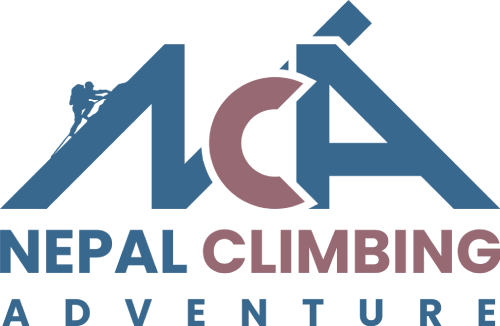
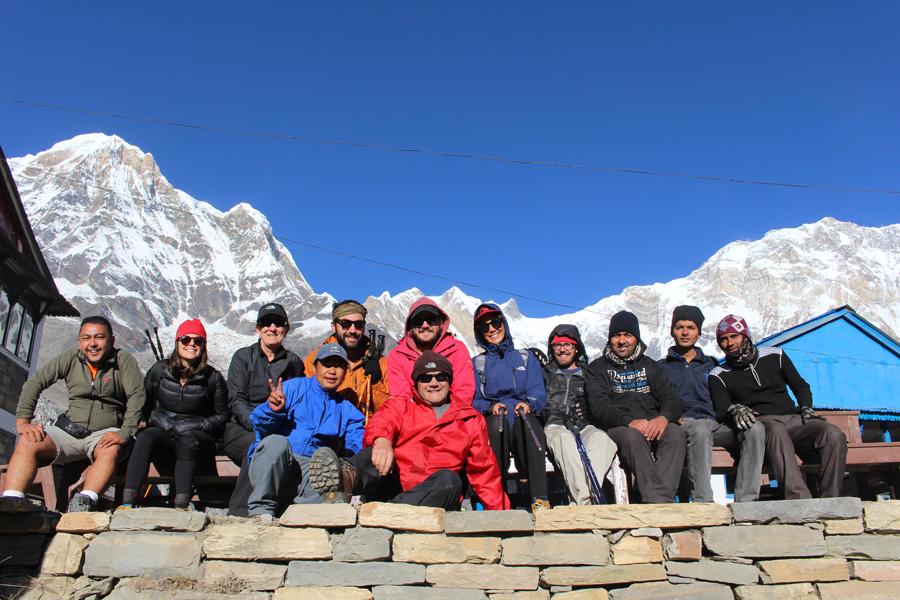
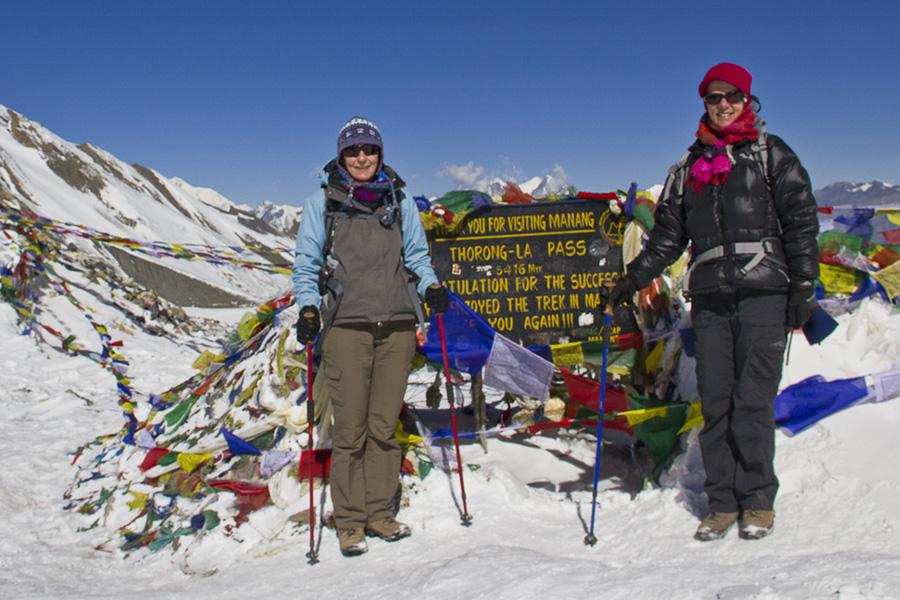
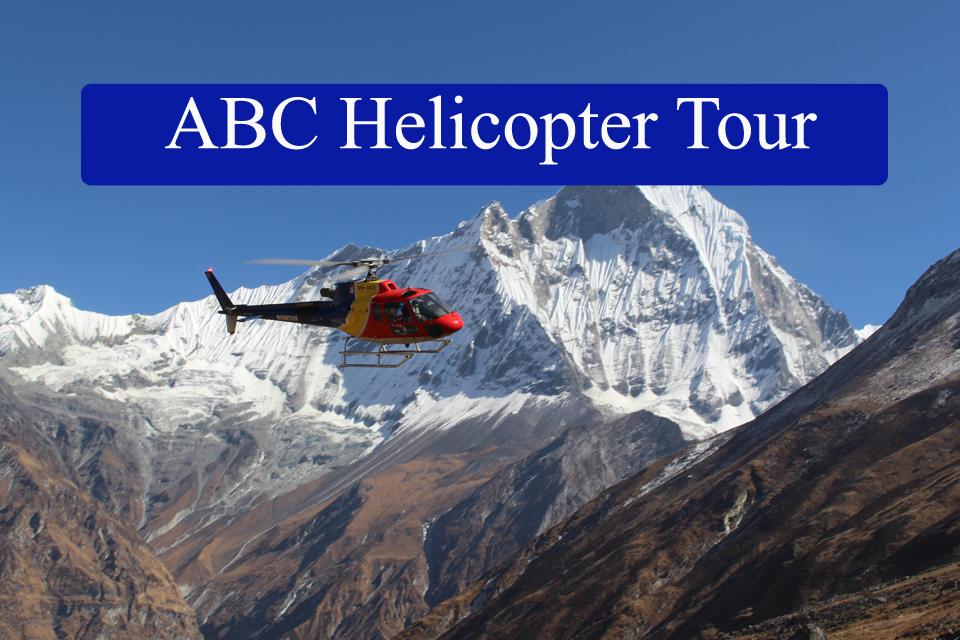
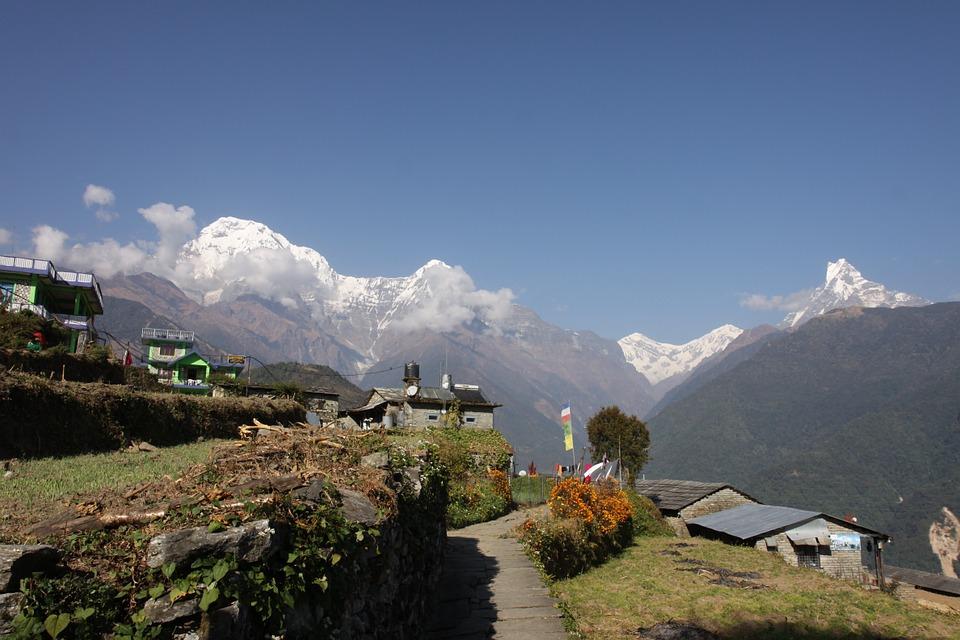
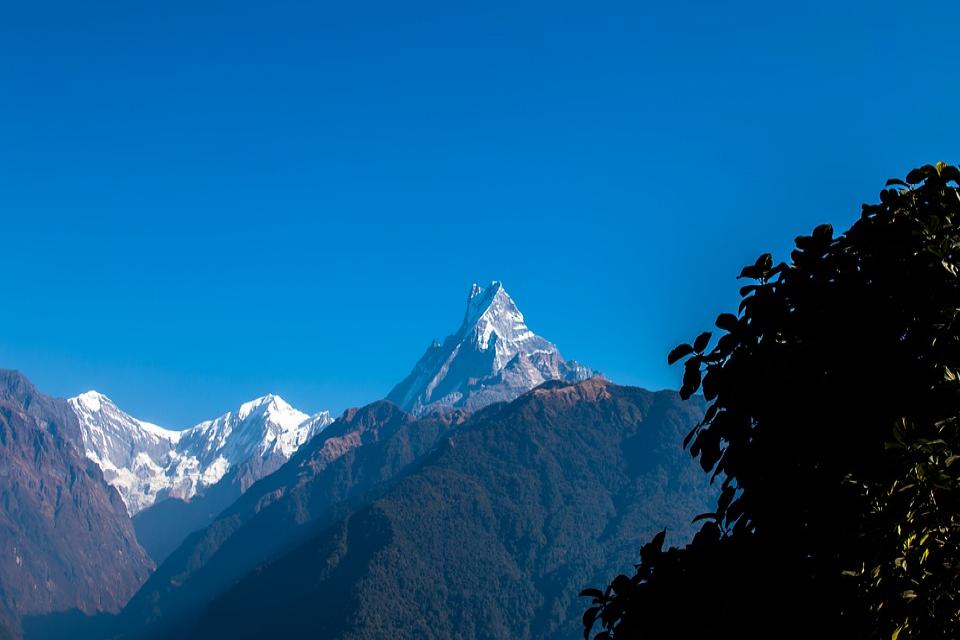
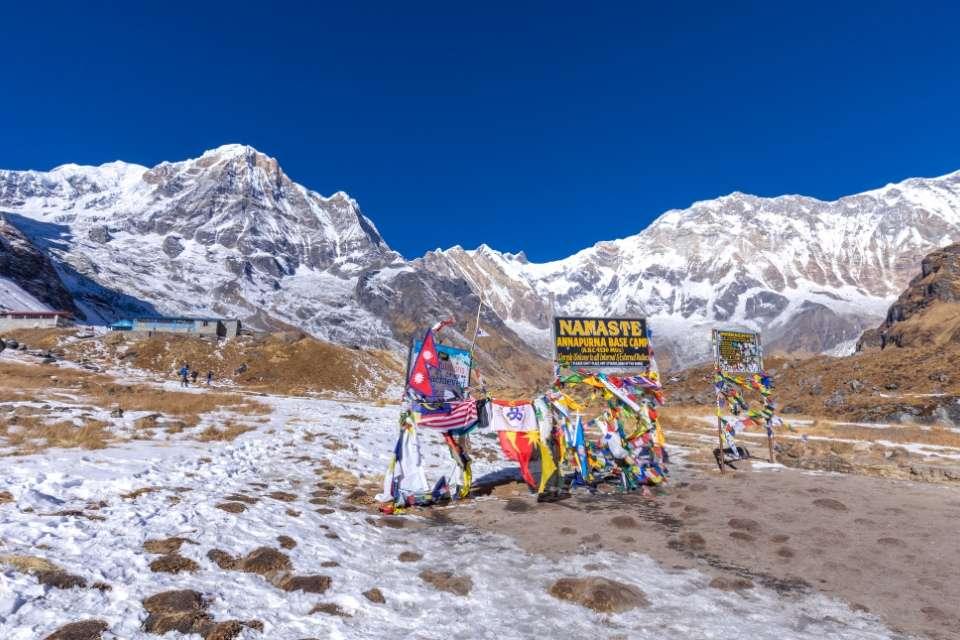
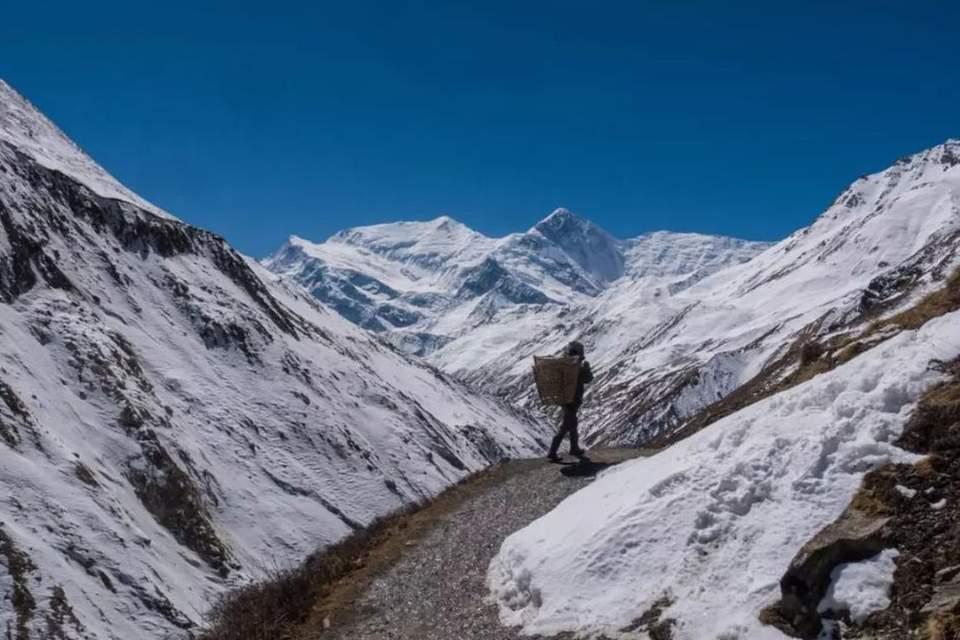
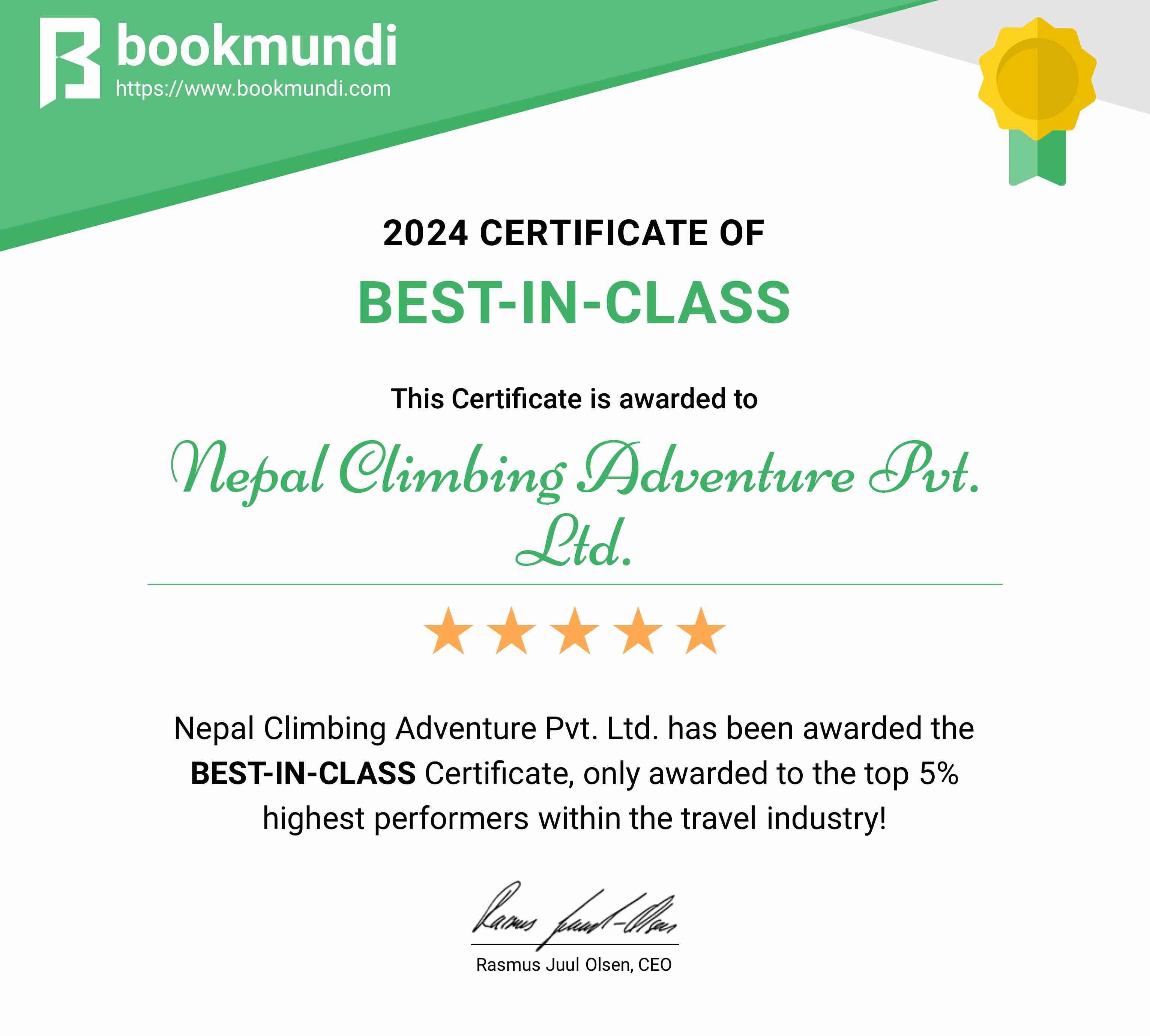

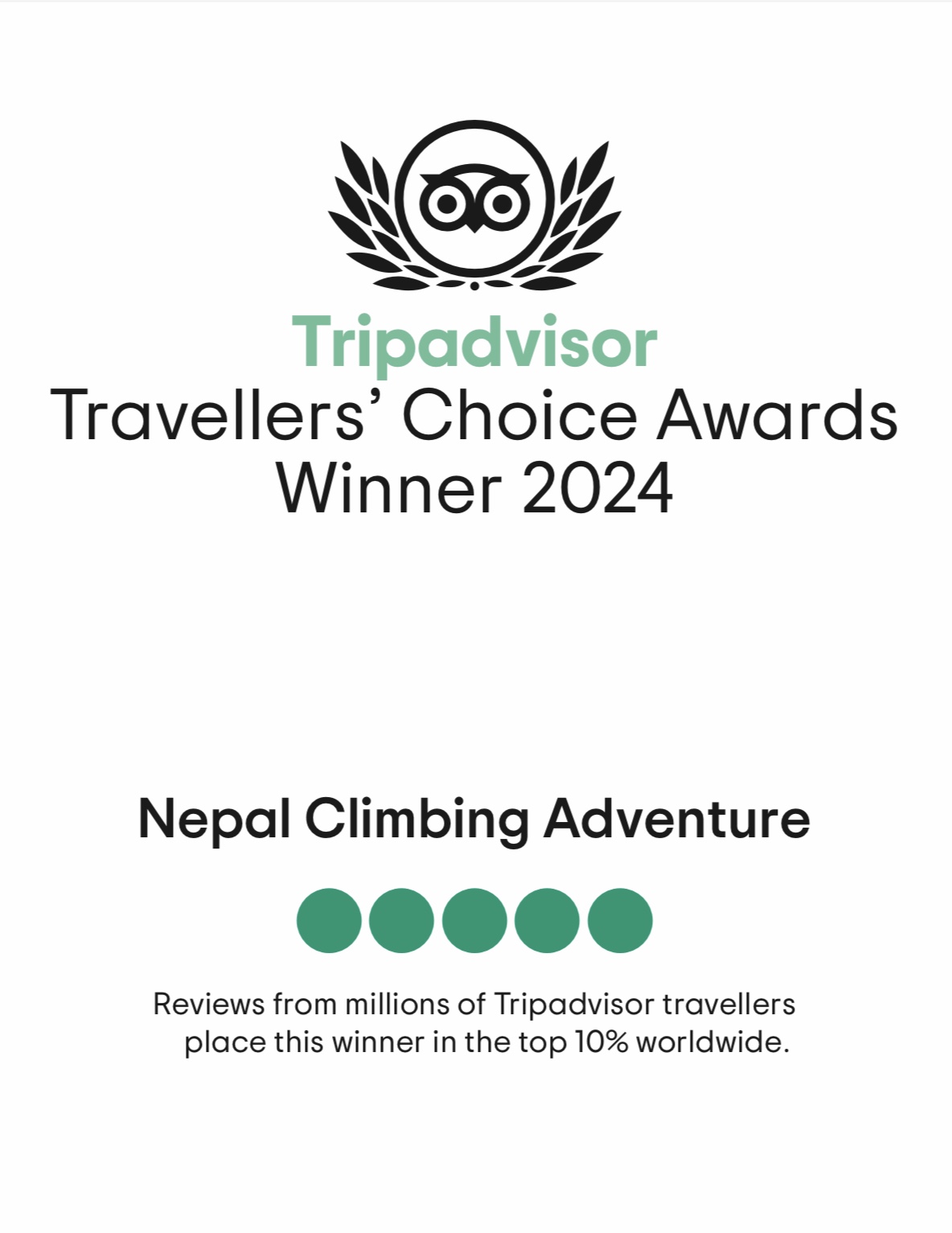
















 Chris Chhetri
Chris Chhetri